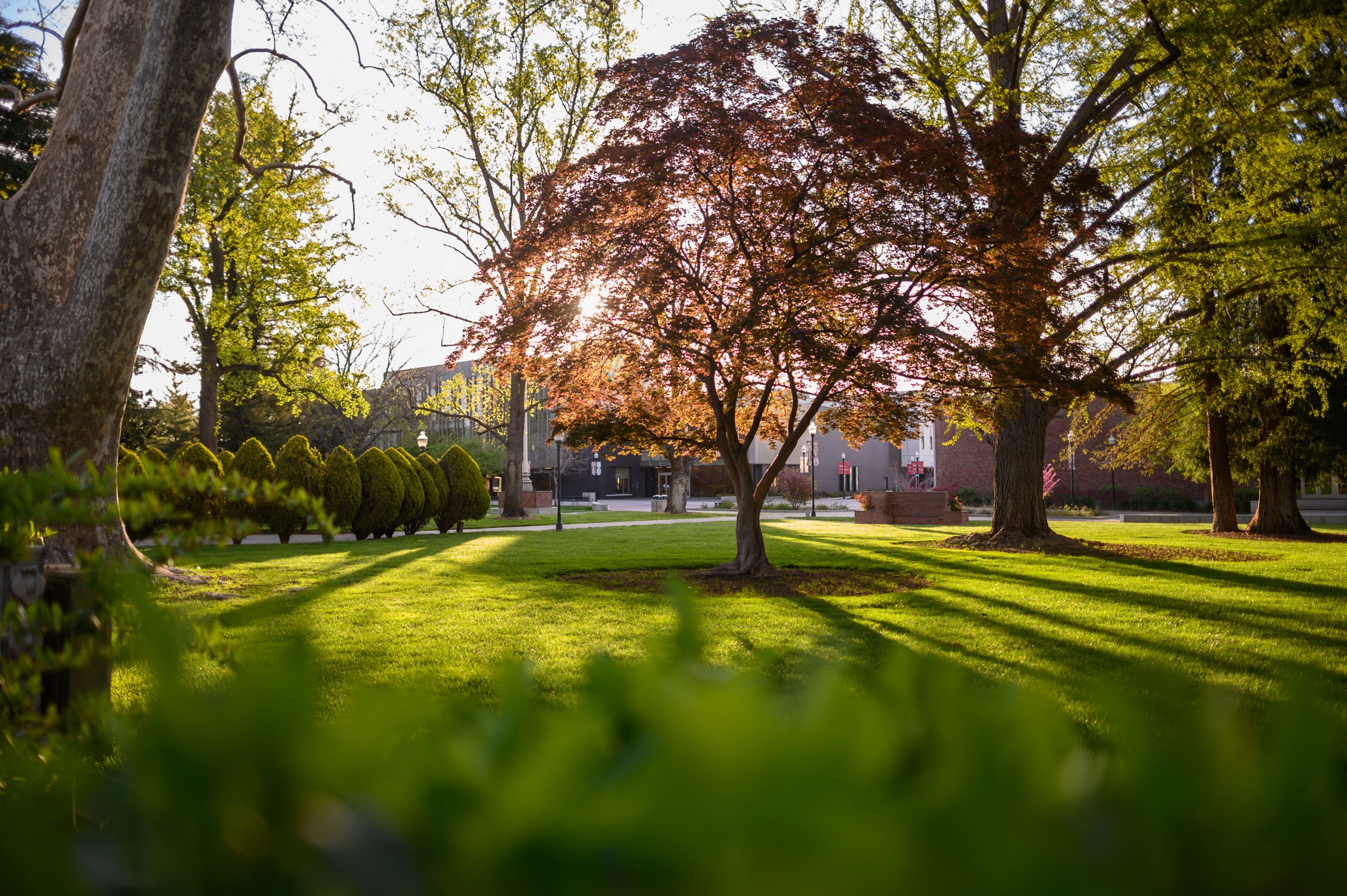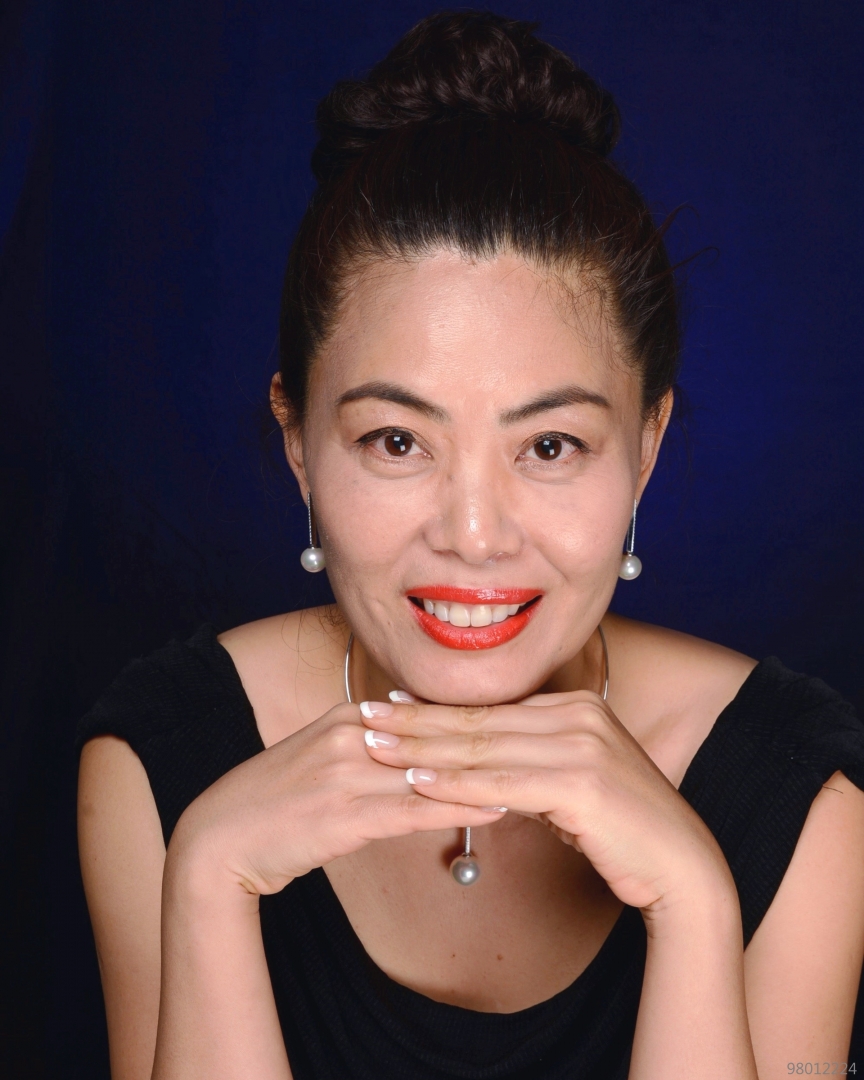A Plea for Kindness and Rejecting Racism

An early morning view of the Kendall Hall lawn on Friday, March 27, 2020 in Chico, Calif. Chico State has moved to virtual delivery of instruction and most services for the remainder of the spring semester. (Jason Halley/University Photographer/CSU, Chico)
Editor’s Note: Professor Chunyan Song wrote this narrative to support a story by the Office of the Chancellor that addresses the uptick in racist incidents targeting Asian Americans after the start of the COVID-19 pandemic. She joined four other CSU faculty members in offering advice on how to combat racism in a time of fear.
By Chunyan Echo Song, professor of sociology
Like many of you, my emotions have been on a rocky roller-coaster ride in the past few weeks. Unlike many of you, being a first-generation Chinese American, my experience also has been largely shaped by my race, ethnicity, immigration status, and politics between two global superpowers.
One of the hardest things to explain to my fellow American friends in the United States is how lonely I have been feeling in the last few months. I am the only one from my Chinese side of the family that lives in the US. Since the pandemic started in China, I have been binge-reading everything on COVID-19 first in Chinese and then in the English media. After three months of being bombarded with news on death, despair, and various conspiracy theories from both sides, I feel overwhelmed, exhausted, and depressed.
It has been extremely hard to read and hear about the suffering and daily struggles of my Chinese family and friends from thousands of miles away. It was even harder to realize that most Americans couldn’t or wouldn’t identify with Chinese pain.
In the western media, China has been portrayed as distant, foreign, and often also backward and suspicious. When the pandemic started, my Chinese culture and its people were mocked at and demonized. For weeks, while politicians and the American media downplayed the severity of the virus and debated the benefits of face masks, I struggled in my solo battle to convey the importance of social distancing and healthy practices to my own American family, let alone to the public. I was very aware that my Chinese-ness and foreignness would make me appear biased and untrustworthy in the eyes of many Americans.
The pandemic indeed has brought out the best and the worst of people. The best is the outpouring of support to each other, essential workers, and healthcare professionals. Volunteers sew masks for friends and hospitals. Young people go shopping for senior residents who live alone. I feel deeply touched by these acts of kindness. What upsets me are the ignorant people who disrespect social distancing.
Even worse are ignorant people who are also racists. In the last few weeks, Asian Americans—a racial category with almost 50 ethnic groups including Chinese—have been spit on, harassed, and violently attacked. I have felt fairly safe in my 20 years living in the United States—until now.
I have become very self-conscious of my race and ethnicity out in public. I remain alert while rushing through grocery stores, going on my evening walks in the neighborhood, and even taking the trash out on Tuesday evenings. It was made even worse when President Trump insisted on using the term “Chinese virus” to distract public attention from the federal government’s own incompetence.
I have two young kids, and I want to stay alive. Even when the Centers for Disease Control finally recommended wearing masks, I hesitated and wondered whether wearing a mask would make me even more of a target of racial attacks out in the public.
Racism and xenophobia targeting Asian Americans and other marginalized groups have been the norm throughout American history during difficult times such as disease outbreaks, wars, and economic recessions. Both race and racism are social constructs and are products of human interaction.
Racism not only exists in the United States but also in China and elsewhere. During this pandemic, while Chinese people have become the target of racist attacks outside China, African residents in Guangzhou, China, are being evicted and banned from businesses due to pure racism and unfounded fear of imported conronavirus cases.
Getting the virus under control would not rid anti-Asian racism or discriminatory attitudes against any other population. I strongly agree with author Toni Morrison that “racism will disappear when it’s no longer profitable and no longer psychologically useful.” As a society, we have to address the long-held racial bias and racial tensions among all of us.
To combat bigotry and racism, we need solid public education on the social construction nature of race and racism. Political leaders need to step up and take a strong stand condemning bigotry and take long-lasting actions to address systematic racism in our country. For individual citizens, please cast your vote for community leaders and politicians who are strong advocates for diversity and social justice.
And finally, please do reach out to your Asian American friends, neighbors, and local Asian communities. Your kindness, support, and solidarity mean a lot to a vulnerable minority group that is caught in a crisis within a crisis. Be kind, reach out and show your support!

Chunyan Echo Song is a professor of sociology at Chico State. She was born and raised in Shandong, China, and moved to the United States for graduate school in 1999. In 2005, she received a PhD in sociology from Arizona State University and began teaching at Chico State. She teaches Asian American experience, population and migration, race, ethnicity and nationalism, and statistics.


